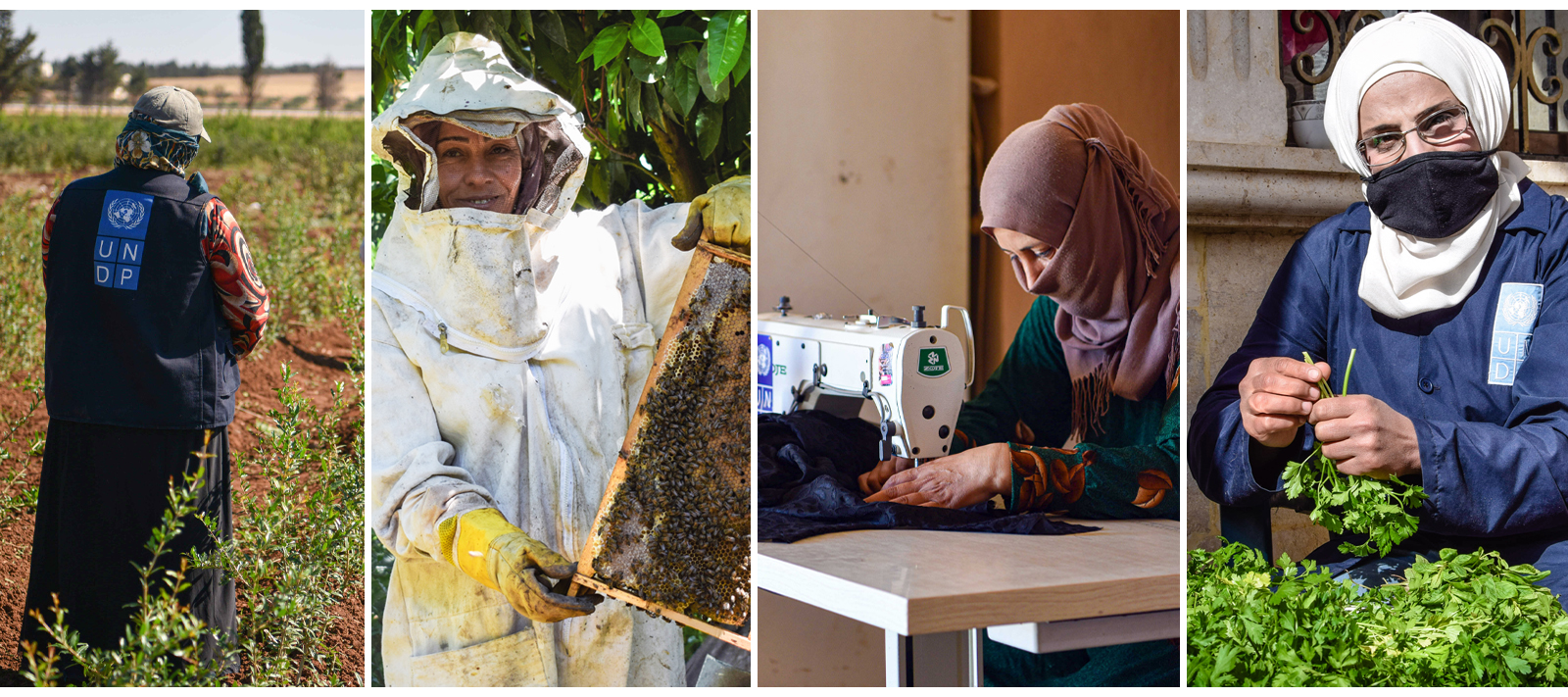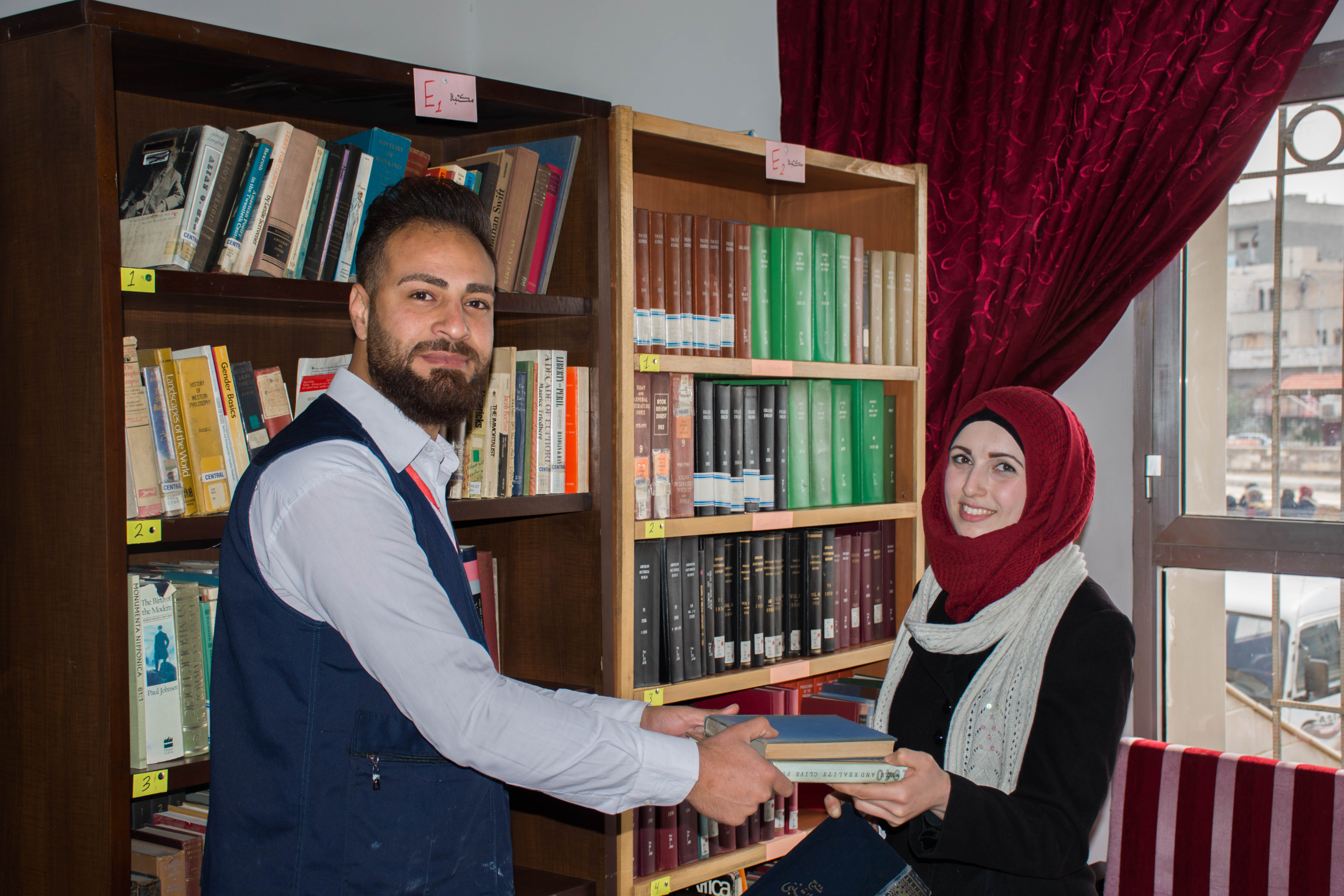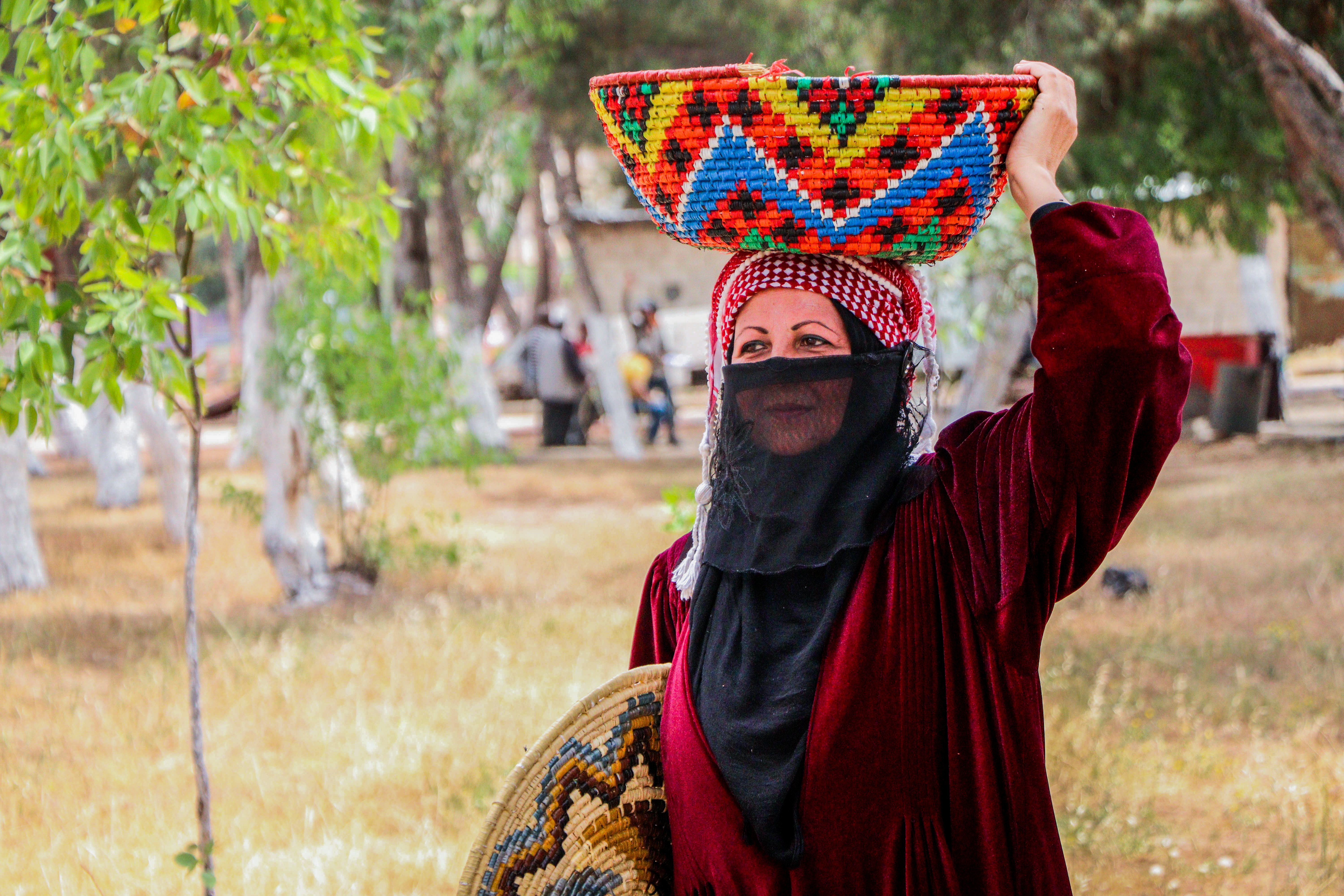The idea challenge: Women led social enterprises pave the way towards economic independence, empowerment, and community solidarity.
June 27, 2022

“It all starts with an idea. We had this dream for years, we finally made it a reality”Maysa’a one of the founders of the Social Solidarity Kitchen in Swaida.
In 2021, the United Nations Development Programme (UNDP) launched the Idea Challenge project, the first social enterprise programme in Syria with the aim of supporting the development of new and/or existing social enterprises that contribute to women’s economic empowerment.
What is a social enterprise?
A social enterprise or social business is defined as a business with specific social objectives. By selling goods and services, social enterprises create employment and reinvest their profits back into their business or the local community. In this way, social enterprises contribute to tackling social problems, improving people’s life chances, all while providing training and employment opportunities.
Why social enterprise?
Over a decade of war and crisis in Syria have pushed millions of people into unemployment and poverty. More than 90 percent of the Syrian population is estimated to be living below the poverty line, and close to two-thirds live in extreme poverty with women being disproportionately affected.
At the same time, women’s participation in the labour force remains relatively weak at 22 percent, compared with 78 percent for men. With less access to land and asset ownership women face significant barriers in accessing financing opportunities. Among micro, small and medium sized enterprises, women own 35 percent of businesses, of which 73 percent operate in the informal sector.
That is why it is important to invest in social enterprises that are led by women, staffed by women, and created for women who can be catalysts for change.
How we did it?
The announcement and call for applications for the Idea Challenge Project was made on UNDP Syria Facebook page reaching over 200 thousand people.
359 teams applied for the competition, from all over Syria. Using rigorous criteria to choose the ideas most likely to succeed, 50 teams were selected to participate in a four-day bootcamp in business model generation and business plan development.
“It was very inspiring to see all the diverse and innovative ideas we have received from women from all walks of life” said Tammam Yahia, private sector and MSMEs support and development programme specialist.
“We received many innovative ideas that challenge traditional gender norms, offering solutions to address some of the barriers facing women’s economic empowerment and marginalized communities” he added.
At the end of the boot camp, 26 winning teams received financial support and mentorship from the Syrian Business Council (SBC).
How they did it?...Meet some of the champions

Maria, Bara’ah, Abboud, and Ramadan from Rural Raqqa in northeast Syria got together to form the White Hands enterprise.
With the funds received, they purchased a tractor to be invested in cultivating lands, transporting crops and potable water. The tractor was leased to other farmers in the area for a competitive fee. Breaking social stereotypes, 20 women from different tribes, educational backgrounds, age groups and ethnicities were trained on how to operate the tractor in addition to life and entrepreneurship skills necessary to run the enterprise for their and community’s benefit.
With the objective of supporting university students from the profits, eight women from Swaida, in the southwestern part of Syria got together and started a catering business that currently employs 30 women.
“Some of the students we supported and graduated to become doctors and engineers came back and offered to support this kitchen, paying forward to other students in need. They are our hope for a better future” said Maysa’a, one of the project founders.

Iman, Manar and Dalia from Homs in western Syria got together to establish a bibliotic and stationary shop with a special focus on catering for the needs of the visually impaired. They are currently employing 40 people including supporting 30 persons with different kinds of disabilities to continue their postgraduate studies.
Nisreen and Rajaa from Tartous on the coast of Syria got together and started a workshop back in 2019 specialized in handmade embroidery and accessories. With the funds received, they were able to expand the workshop which is currently employing 13 women. They have since trained a total of 25 women, some of whom have started their own businesses.
“Be yourself. Be strong. Don’t be afraid to take chances. The possibilities are limitless” said Nisreen Hasan, one of the project founders.

Eman and Nour set up a marketing and digital services agency, using part of the revenue to establish a community centre so they can train other women on photography, graphic design, web, and social media management. They are currently employing six women and have trained 15 others, who will be working together on documenting the rich intangible heritage of the area through videos, photos, and stories.
With the purpose of keeping the ancient art of engraving and painting on wood alive and break the historic domination of men on this field, Nadra, Omar, Ayaa, Alaa and Laila from Aleppo in northwest Syria established a workshop where women can train and sell their products in the market. They are currently employing 18 women, including five experts and mentors in this beautiful traditional craft.
“We want to take part in restoring ancient mosques, churches and markets affected by the crisis in Aleppo” said Nadra one of the project founders.
Raghad, Mohammad, and Naji from Deir ez-Zur in eastern Syria established an agricultural nursery where women are trained on modern agricultural techniques such as hydroponic cultivation, in addition to ornamental plants, vegetables and fruit seedlings.
They are currently employing 10 women. Half of their revenue will be used to pay for the transportation of 30 cancer patients for their treatment trips to Damascus and support 25 elderly who don’t have any income.
____________________________________
“We need to step up our investment in women who can make change happen. By giving women a voice in their communities while making a decent living. It’s about solidarity, not charity”Ramla Khalidi, UNDP Resident Representative in Syria.
Social enterprises are making positive economic and social change. Thanks to generous support from our partners, Japan, Germany, Finland, and Russia for making this possible.

 Locations
Locations



